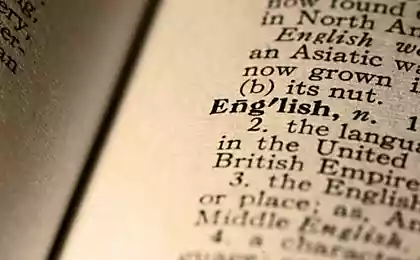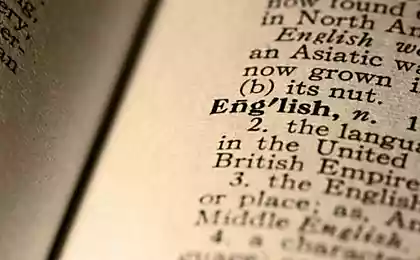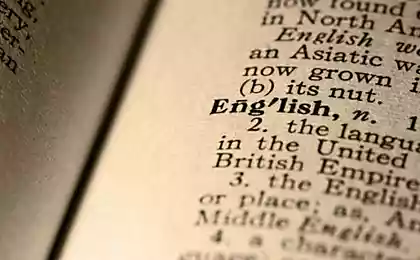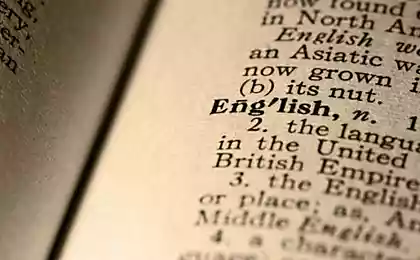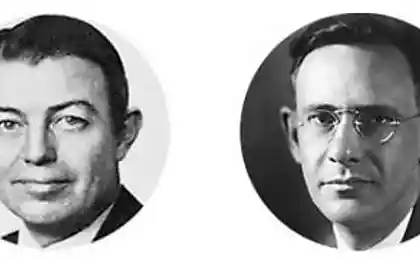1180
Seven curious facts about the English language, which we did not know
Have you noticed all around or learn English, learn it or dream? It is not surprising - in our time is difficult without English. In addition, the language allows you to "pump" the brain and significantly smarter, and this is important. < Website publishes a selection of very interesting facts about the English language, which will inspire you to study it! Well, or just be entertained, that is also fine.

Statistics h2> Although English is only the third place in the list of the most popular, the total number of people speaking in English, more than a billion. That's roughly one in seven earthling. But do not think that the majority of English speakers living in the United States and England. For example, in Nigeria is home to more native English than in England
United Kingdom and the United States h2> In the field of language between these countries there are rather vague relations. During the struggle for independence and building the young American nation attempts to come up with their own American language, what excelled Noah Webster published his "American Dictionary of the English language." And in Illinois until 1969 there was a law forbidding to speak English. As an official language of the State instructed to use American Sign Language.
Word h2> In any language there are unusual words that stand out from the total number of interesting writing or sound. Here are some examples of English.
The longest English word without a vowel - rhythms (rhythms). In the English language there is a word with a vowel, which is repeated six times, - indivisibility (unity). The most ambiguous words in the English language - set. It has 44 main meanings for the verb, the noun values for 17, 7 values for the adjective and a few hundred different versions. So the translation of this insidious words need to be especially careful. Pneumonoultramicroscopicsilicovolcanoconiosis - the longest word that denotes the name of the disease, and translated into Russian like this: "lung disease caused by inhalation of particles of volcanic origin, or other kind of small dust ". The most interesting is that this disease is not really there. From 1932 to 1940, due to a typographical error in the English Dictionary included the word, who had no value. This word dord, also known as "word ghost». Wealth and Poverty h2> There is a theory that the English language was so widely accepted because of its simplicity and uniqueness. However, it is not so. In English, most words (about 800,000) and the richest synonymous ranks. For example, for the word drunk (drunk), there is synonymous with 2241, and this result is even recorded in the Guinness Book of Records. In addition, English is one of the fastest growing languages. Every 98 minutes there is a new practice of spoken word.


